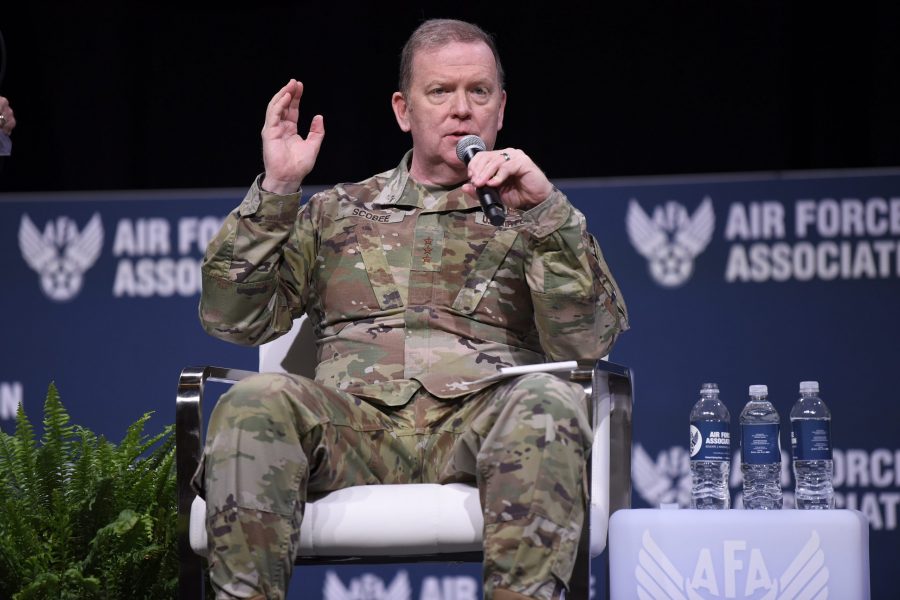ORLANDO, Fla.—Chief Master Sgt. Timothy White Jr., senior enlisted advisor to Air Force Reserve chief Lt. Gen. Richard Scobee, is leading a push to place full-time First Sergeants in each of the Reserve’s wings and extend chaplain services across the command in an effort to boost resilience.
Air Force Reserve resilience is off to a better start this year, but the component has already seen two suicides in 2020, Scobee told Air Force Magazine on Feb. 27.
“The state of resiliency is not where I want it to be,” he said in an interview on the sidelines of the Air Force Association’s 2020 Air Warfare Symposium, adding that he won’t be satisfied until the number of suicides reaches zero. The Air Force Reserve saw a total of 16 suicides in 2019, he said.
Scobee said the chaplain piece is vital not only because a lot of Reservists “are people of faith,” but also because counseling is a core part of their job description. By analyzing aggregate data from the chaplains’ counseling work, the Reserve can identify problem areas and “bring in people to help us where we need to,” he explained.
“We’re gonna start with 10 full-time chaplains in the bases that we own ourselves,” Scobee said.
Relationships and finances are the two areas Reservists seem to struggle with most, with disciplinary issues factoring in to a lesser extent, Scobee said.
As a result, the command is looking to teach its forces what healthy relationships and finances look like, and to ensure Airmen are aware of the resources available to them to help them escape unwieldy situations.
The Reserve is also working to build more resilient leaders and families, Scobee said.
All but one of the 16 Airmen whose lives were lost to suicide in 2019 was “part time, but were not in service at the time,” Scobee said. For the Reserve, this common thread has hammered home the importance of fostering a greater sense of connectedness among its Airmen, regardless of status.
Scobee said if the 15 airmen who weren’t in status knew there was a place they could go and access counseling or other resources without judgement, “and if we could … turn those numbers around,” he’d call that a success. “But, right now, I feel unsuccessful trying to make sure my Airmen feel connected,” he said.
White said that if an out-of-status Reservist is in crisis, the command will go so far as to bring them into status to get them the help they need.
“Boss [Scobee] has made that perfectly clear to commanders [on] every level and members themselves,” he said.
The Air Force ordered units across the force to stand down for one day last summer to discuss resiliency and check on the mental health of their airmen, but suicide rates continued to rise. By the end of 2019, a total of 137 Airmen committed suicide—a 33 percent increase from the 103 suicides in 2018.
Air Force Secretary Barbara Barrett said the service is bringing in experts through its True North program—which embeds mental health professionals, physiologists, physical therapists, and a religious support team within high-risk groups of a Wing—in an effort to tackle the problem.
“They will help us determine whether another stand down makes sense,” she told Air Force Magazine. “I wonder to myself if when we talk about it, is it helpful or hurtful? Does that bend the curve up or down? There’s something going on. It is a tragedy and we take it to heart. We are concerned the curve is bending the wrong way.”
News Editor Amy McCullough contributed to this report.

